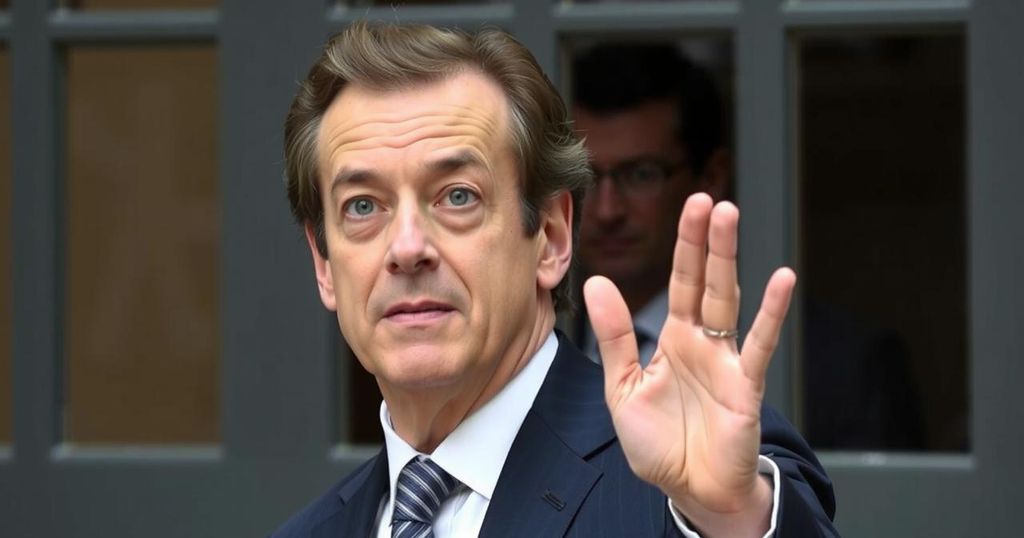Nicolas Sarkozy is on trial in Paris, accused of receiving illicit funds from Muammar Gaddafi for his 2007 election campaign. Prosecutors allege he promised support to Gaddafi in exchange for financial backing. Sarkozy denies the charges, attributing them to political motivations, while his wife, Carla Bruni-Sarkozy, faces related allegations. This trial may have significant implications for Sarkozy’s future as it continues until April 10, with potential prison time if convicted.
Former French President Nicolas Sarkozy commenced his trial in Paris concerning allegations that he received illicit funding from the late Libyan leader Muammar Gaddafi for his 2007 presidential campaign. Prosecutors assert that Sarkozy promised assistance to Gaddafi in mitigating his negative image among Western nations in return for these funds. Sarkozy, who served as president from 2007 until 2012, has persistently denied these accusations, asserting that they are politically motivated attempts to undermine him. The investigation traces back to 2013, following Saif al-Islam Gaddafi’s claims about substantial payments made to Sarkozy during his campaign. Additionally, businessman Ziad Takieddine alleged that Sarkozy’s campaign was significantly funded by Libyan sources and that financial transactions continued post his election.
Alongside Sarkozy, twelve other individuals accused of facilitating this arrangement are also on trial, all maintaining their innocence. Moreover, Carla Bruni-Sarkozy, his wife, faces charges of concealing evidence related to this case and is accused of colluding with criminals to commit fraud, charges she refutes. Following his defeat in the 2012 elections, Sarkozy has become the subject of various legal inquiries, including a February 2024 ruling regarding overspending during his re-election campaign, which resulted in a one-year sentence, half of which is suspended. In a separate 2021 case, Sarkozy was found guilty of bribing a judge and thereby became the first former French president to receive a custodial sentence.
As this trial progresses, there is an expectation that Sarkozy may be mandated to wear an electronic monitoring device due to his previous sentencing. The trial, focusing on the alleged Libya connection, is scheduled to last until April 10, and should he be found guilty, Sarkozy could face a prison sentence of up to ten years.
The trial of Nicolas Sarkozy is set against a backdrop of serious allegations linking him to illicit financial dealings with the late Libyan leader Gaddafi. Sarkozy’s presidency (2007-2012) has been marred with multiple legal challenges, particularly following claims made by Saif al-Islam Gaddafi in 2013 regarding campaign financing. These accusations have escalated following testimonies from intermediaries and business figures, casting a shadow over Sarkozy’s political legacy and shedding light on the complexities of political funding and international relations in the context of his administration.
In conclusion, Nicolas Sarkozy’s trial represents a significant legal chapter in French political history, highlighting the controversies surrounding campaign financing and international relations. The allegations of receiving funds from Gaddafi have brought forth a broader discussion about accountability and transparency in political financing. As Sarkozy and his co-defendants await the trial’s outcome, the legal ramifications could potentially alter the course of his post-presidential life, depending on the court’s judgment.
Original Source: www.bbc.com






